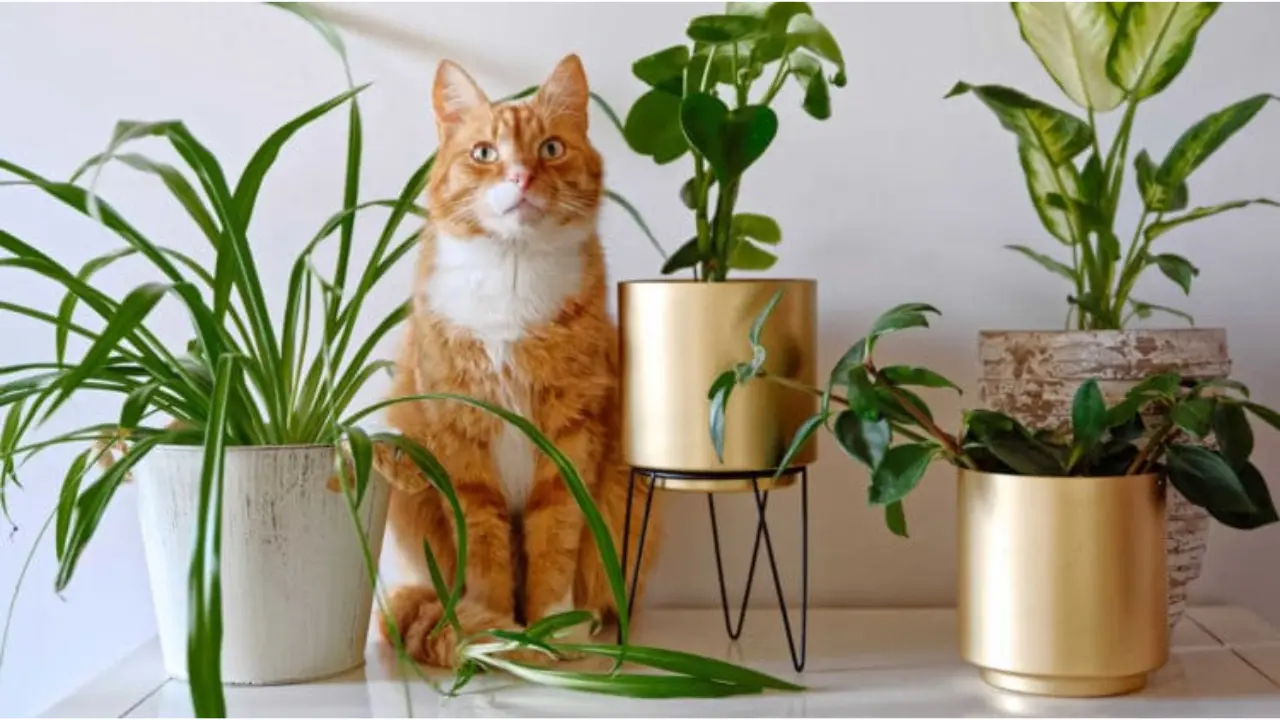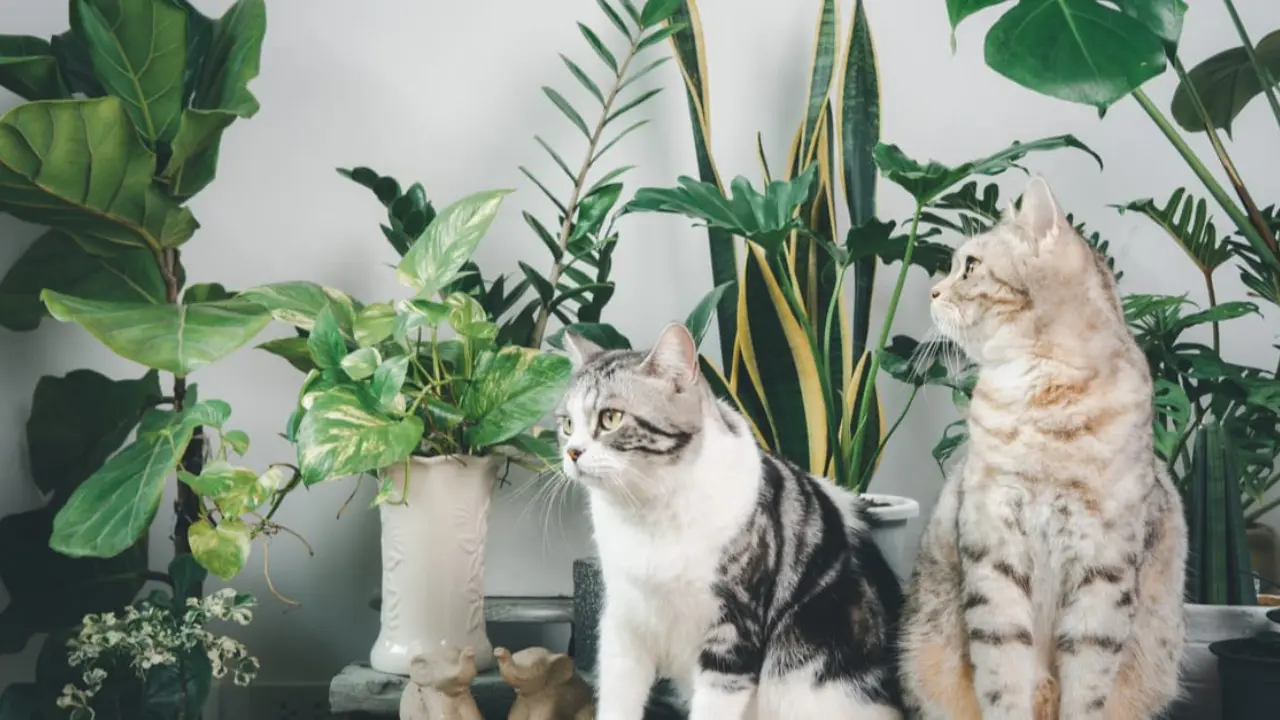Cilantro, also known as coriander or Chinese parsley, is a popular herb in various culinary dishes worldwide. As a cat owner, you may wonder whether cilantro is safe for your feline friend to consume. Can cats eat cilantro? This article will explore Can Cats Eat Cilantro, its potential benefits, and considerations for introducing this herb to your cat’s diet.
Cilantro
Cilantro has delicate, feathery leaves and a distinctive, fresh flavor. It is often used as a garnish or ingredient in various dishes, including salads, salsas, and curries. Moreover, cilantro is rich in vitamins, minerals, and antioxidants, contributing to its potential health benefits.
Cilantro Safe for Cats to Eat?
Cilantro is not toxic or poisonous to cats, according to the ASPCA, so many cat owners may wonder if they can give it to their cats. However, cats are obligate carnivores, which means that animal-based proteins are essential for their bodies. They do not need plant-based foods, such as cilantro, and eating too much or too often may cause digestive issues for them. In small amounts, cilantro is generally considered safe for cats to consume. Many cats show no adverse reactions when they nibble on a small quantity of cilantro leaves. However, it’s essential to introduce new foods gradually and observe your cat’s response.
Therefore, you should only give cilantro to your cat as a very occasional and tiny treat, not as a part of their main diet. You should start with a small amount and observe how your cat reacts when you introduce cilantro to them. Some cats may have a sensitivity or intolerance to cilantro, which can result in symptoms such as diarrhea, vomiting, or loss of appetite. If you notice any of these signs, you should stop giving cilantro to your cat and consult with your veterinarian. Another thing to keep in mind is that cats cannot chew or digest plant materials well, so you should puree or grind cilantro before giving it to your cat. This will help prevent choking hazards and make it easier for your cat to swallow and digest the herb.
Benefits of Cilantro and Cats
While cilantro is not necessary for cats, it has some potential benefits that make it a worthwhile treat for your feline friend. Cilantro is rich in vitamins, minerals, antioxidants, and anti-inflammatory compounds that can benefit your cat. Here are some of the benefits of cilantro for cats:
- Vitamin K: Cilantro is a good source of vitamin K, which is important for blood clotting and bone health. Moreover, vitamin K can help prevent bleeding disorders and osteoporosis in cats.
- Vitamin C: Cilantro is also high in vitamin C, an antioxidant that can boost the immune system and protect against infections and diseases. In addition, vitamin C can also help with wound healing and skin health in cats.
- Potassium: Cilantro contains potassium, a mineral that helps regulate the body’s fluid balance and blood pressure. Potassium can also support heart and kidney function in cats.
- Dietary Fiber: Cilantro has some dietary fiber, which can help with digestion and bowel movements in cats. Fiber can also prevent constipation and hairballs in cats.
- Aromatic: Cilantro has a strong and pleasant aroma that can stimulate your cat’s appetite and senses. Some cats may enjoy the smell and taste of cilantro, which can add variety and flavor to their food.
- Fresh Breath: Cilantro can also help freshen your cat’s breath, as it has antibacterial and antifungal properties that can kill the germs that cause bad breath. Cilantro can also mask the odor of foods your cat may eat, such as fish or meat.
Precautions and Considerations
Cilantro is not harmful to cats. But it can still be bad for them if you give them too much or too often. Here are some problems that cilantro can cause for cats:
Stomach Problems: Some cats may have trouble digesting cilantro. They may get gas, belly pain, diarrhea, throw up, or not want to eat. These problems can be small or big, depending on how much and how often they eat cilantro. If your cat has any of these problems after eating cilantro, you should stop giving it to them and talk to your vet.
Allergies: Some cats may be allergic to cilantro. They may get rashes, itching, swelling, or trouble breathing. These problems can be very serious and need quick treatment. If your cat has any allergies or sensitivities to food, you should not give them cilantro or any other new food.
Moderation: Offer cilantro to your cat in small amounts as an occasional treat. It should not replace their regular, balanced diet.
Allergies and Sensitivities: Some cats may be sensitive or allergic to cilantro. Watch for any signs of digestive upset, such as vomiting or diarrhea, and discontinue feeding cilantro if these symptoms occur.
Herbicides and Pesticides: Ensure that any cilantro you offer to your cat is organic and free from harmful herbicides or pesticides.
Cilantro and Cats: How to give Cilantro to Cats
Cilantro is an herb that some cats may enjoy as a treat. If you want to give cilantro to your cat, follow these steps:
- Wash and chop the cilantro well. This will remove any dirt or germs and make it easier for your cat to eat.
- Mix the cilantro with your cat’s regular food. This will hide the strong taste of cilantro and make it more tasty for your cat. You can also add some water or broth to make the food softer.
- Give your cat a small amount of cilantro at first. This will let your cat get used to the new food and avoid any problems. You can give your cat more cilantro if they like it and have no issues.
- Give your cat cilantro only once in a while, not every day. You should not give your cat more than a tablespoon of cilantro per day. This will keep your cat’s diet balanced and healthy.
- Watch your cat after giving them cilantro. If your cat has any signs of allergies, stomach upset, or loss of appetite, stop giving them cilantro and talk to your vet right away.
Potential Sensitivity or Allergy
Monitor your cat for any signs of sensitivity or allergy after eating cilantro. These signs may include vomiting, diarrhea, excessive drooling, or changes in behavior. If you notice any adverse reactions, discontinue offering cilantro and consult your veterinarian if necessary.
Cat-Friendly Herbs
If you’re unsure about cilantro or your cat dislikes it, you can consider other cat-friendly herbs and greens. These include catnip, cat grass, parsley, and wheatgrass. These alternatives can provide similar sensory stimulation and potential health benefits for your cat.
Conclusion
Cilantro is not harmful or dangerous to cats. It can be given to them sometimes as a reasonable treat. Cats and cilantro may benefit from cilantro’s vitamins, minerals, antioxidants, and anti-inflammatory components. It may improve their desire to eat, senses, and breath. But if cilantro is fed incorrectly or in excess, it can also put cats at risk for digestive problems, allergic responses, or nutritional imbalances. Thus, while offering cilantro to their cats, cat owners should observe certain recommendations, such as cleaning and cutting the herb, combining it with food, starting small, and limiting the time they give it to their cat.




